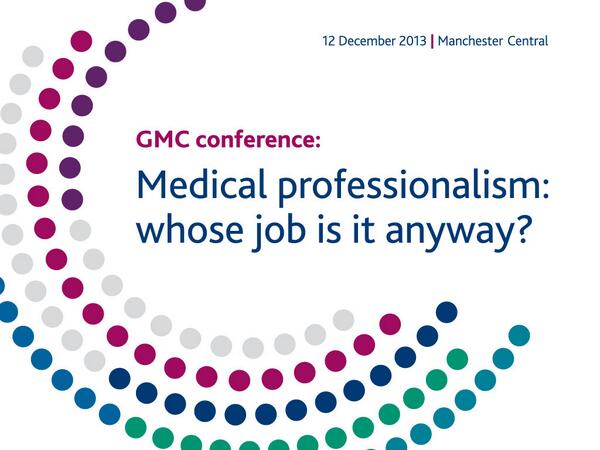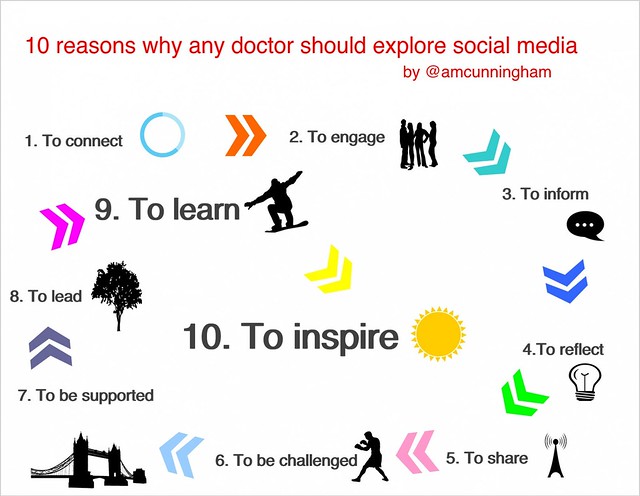 |
| Add caption |
Fast forward to 2013 and the first national GMC conference on 'Medical professionalism : whose job is it anyway?' is held today in Manchester with 400 attendees- over 50% of them medical students and jobbing doctors, but with other stakeholders including patients well represented. There is an official conference hashtag #gmcconf and it is used more than 1500 times today. Throughout the day there is reference to taking questions from tweets and no-one seems to be in any way surprised.
I make about 1/2 the tweets I do at the last event, in part because this time I was giving a lunch-time seminar with Gareth Williams from the GMC office in Cardiff on the social media in practice. A strong conference theme is the nature of professionalism in a post Berwick and Francis report world and so my part of the session focussed on how social media is being used to drive improvement and ensure patient safety by doctors in the UK today.

I concentrated on a few stories - Elin Roddy's experiences of learning and reflecting in social media which lead to her taking on the role of lead for End of Life care in her trust ; raising patient safety through openness and transparency of sharing the #Wrongfooted storify ; NHS Change Day ; the FOAMed initiatives of ECGClass, Gasclass and TeamHaem ; and Kate Granger's #HelloMyNameIs campaign.
A few years ago I was not confident that I could justify urging every doctor to explore social media. But it is now beyond doubt that some of the most innovative, creative and transformative conversations about improving the care of and with our patients are happening within social media.
We must ask ourselves what we can do to help our colleagues and students be part of these conversations.
Thanks for that AM! Like the graphic lots. I'm also more confident -
ReplyDeletestrident even - with my nursing types since the NMC, RCN, etc. have
twitter accounts. I even insist that they do... (link to the wiki page/task I set them: https://cardiff-ac-uk.campuspack.eu/Users/Mike.Johnson/SONMS_Information_Fluency/Social_Networking )
What a visionary! :-)
ReplyDeleteLot of patients or users from all over the world can open their mind to know about what's happening in the world of health and experts can reply to it.
ReplyDeletehttp://www.kreataglobal.com/blog/social-media-marketing/now-facebook-ratings-to-rate-your-business/
Active instagram followers are followers who post, comment, and even
ReplyDeleteshare photos with other users. These followers will also see your photos and comment
or share them with other instagram users. When buying instagram followers, you
should always aim at buying these followers. This is because these are the
followers who are of most value to you. If you are an internet marketer, buying
active instagram followers means that your photos have the potential of going
viral as they get shared numerous times, and as a result your business or
products will be well known. To buy active instagram followers you only need to
place an order and we’ll deliver it within a short period of time. Buy active instagram followers
Nice
ReplyDeleteinfographics! I agree with it in that social media can be used to inspire. Some
people often see its negative side and I can’t blame them, especially when
you’re constantly fed with images of narcissistic teens taking pictures of
themselves. However, they forget that through social media, significant changes
in society were achieved, such as the revolutions in the Middle East and the
mobilization of relief efforts during calamities.
http://spearnet.org